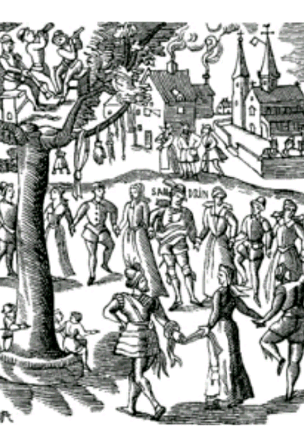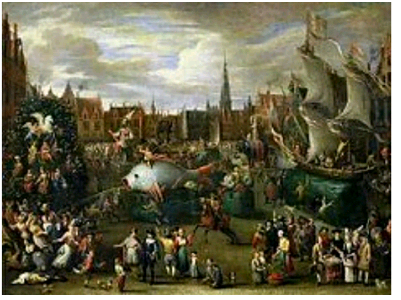A festival is an event ordinarily celebrated by a community and centering on some characteristic aspect of that community and its religion or cultures. It is often marked as a local or national holiday , mela , or eid . A festival constitutes typical cases of glocalization, as well as the high culture-low culture interrelationship. Next to religion and folklore , a significant origin is agricultural . Food is such a vital resource that many festivals are associated with harvest time. Religious commemoration and thanksgiving for good harvests are blended in events that take place in autumn, such as Halloween in the northern hemisphere and Easter in the southern.

Festivals often serve to fulfill specific communal purposes, especially in regard to commemoration or thanking to the gods and goddesses. Celebrations offer a sense of belonging for religious, social, or geographical groups, contributing to group cohesiveness . They may also provide entertainment, which was particularly important to local communities before the advent of mass-produced entertainment. Festivals that focus on cultural or ethnic topics also seek to inform community members of their traditions; the involvement of elders sharing stories and experience provides a means for unity among families. Among many religions , a feast is a set of celebrations in honour of Gods or God . A feast and a festival are historically interchangeable. Most religions have festivals that recur annually and some, such as Passover , Easter and Eid al-Adha are moveable feasts – that is, those that are determined either by lunar or agricultural cycles or the calendar in use at the time.

The Sed festival, for example, celebrated the thirtieth year of an Egyptian pharaoh’s rule and then every three (or four in one case) years after that. Among the Ashanti s, most of their traditional festivals are linked to gazette sites which are believed to be sacred with several rich biological resources in their pristine forms. Thus, the annual commemoration of the festivals helps in maintaining the buoyancy of the conserved natural site, assisting in biodiversity conservation.
In the Christian liturgical calendar, there are two principal feasts, properly known as the Feast of the Nativity of our Lord (Christmas) and the Feast of the Resurrection, (Easter). In the Catholic , Eastern Orthodox, and Anglican liturgical calendars there are a great number of lesser feasts throughout the year commemorating saints, sacred events or doctrines. In the Philippines , each day of the year has at least one specific religious festival, either from Catholic, Islamic, or indigenous origins. Happy Christmas and new year in advance
References
- ^ Robertson, Noel (1992). Festivals and legends: the formation of Greek cities in the light of public ritual (Repr. ed.). Toronto: University of Toronto Press
2 ^ Brandt, edited by J. Rasmus; Iddeng, Jon W. (2012). Greek and Roman festivals : content, meaning, and practice (1st ed.). Oxford: Oxford University Press.
